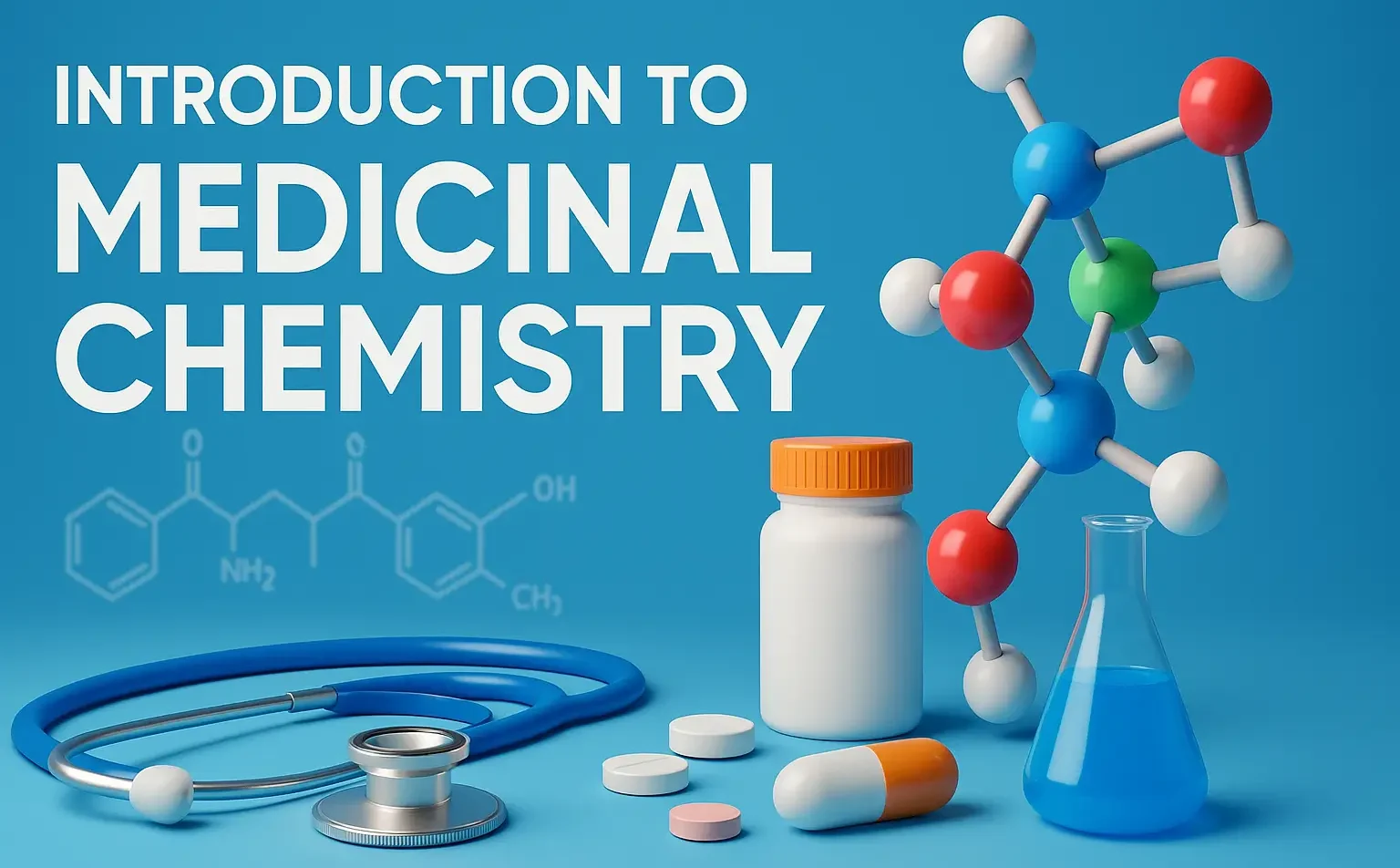- Introduction to Medicinal Chemistry is an interdisciplinary science that lies at the intersection of chemistry, especially synthetic organic chemistry, and pharmacology, with contributions from biochemistry, computational chemistry, and molecular biology.
- Introduction to Medicinal Chemistry: Explores drug design, synthesis & action.
- It is a field dedicated to the discovery, development, and understanding of new substances that can be used as medicines.
Principles of Drug Design
- Effective drug design relies on several fundamental principles:
- Structure-Activity Relationships (SAR) – Understanding how a drug’s chemical structure affects its interaction with its biological target.
- Pharmacophore Development – Identifying the essential features of a drug molecule responsible for its biological activity.
- ADME (Absorption, Distribution, Metabolism, and Excretion) – Key pharmacokinetic properties that determine a drug’s efficacy and safety.
Types of Medicinal Agents
- Small Molecules – Traditional chemical compounds, often orally active.
- Biologics – Including antibodies, nucleic acid-based therapies, and recombinant proteins.
- Prodrugs – Inactive substances that are metabolized into active drugs within the body.
Technological Advances in Medicinal Chemistry
- Combinatorial Chemistry – Allows the rapid synthesis of a large number of different compounds for screening.
- Computer-Aided Drug Design (CADD) – Uses computational tools to model and predict drug behavior.
- Molecular Modeling and Drug Docking – Techniques to visualize and predict how drugs will bind to their biological targets.
Challenges and Future Directions
- Multi-Drug Resistance – A growing concern, particularly in treating infectious diseases and cancer.
- Personalized Medicine – The tailoring of drugs based on an individual’s genetic profile.
- Sustainability in Drug Development – Designing environmentally friendly synthesis processes to minimize waste and pollution.
Ethical Considerations in Medicinal Chemistry
- Ethics play a crucial role in drug development and distribution:
- Clinical Trials – Ensuring they are conducted ethically and safely to protect human participants.
- Access to Medicines – Balancing pharmaceutical profit with the need for affordable medicines, particularly in lower-income countries

